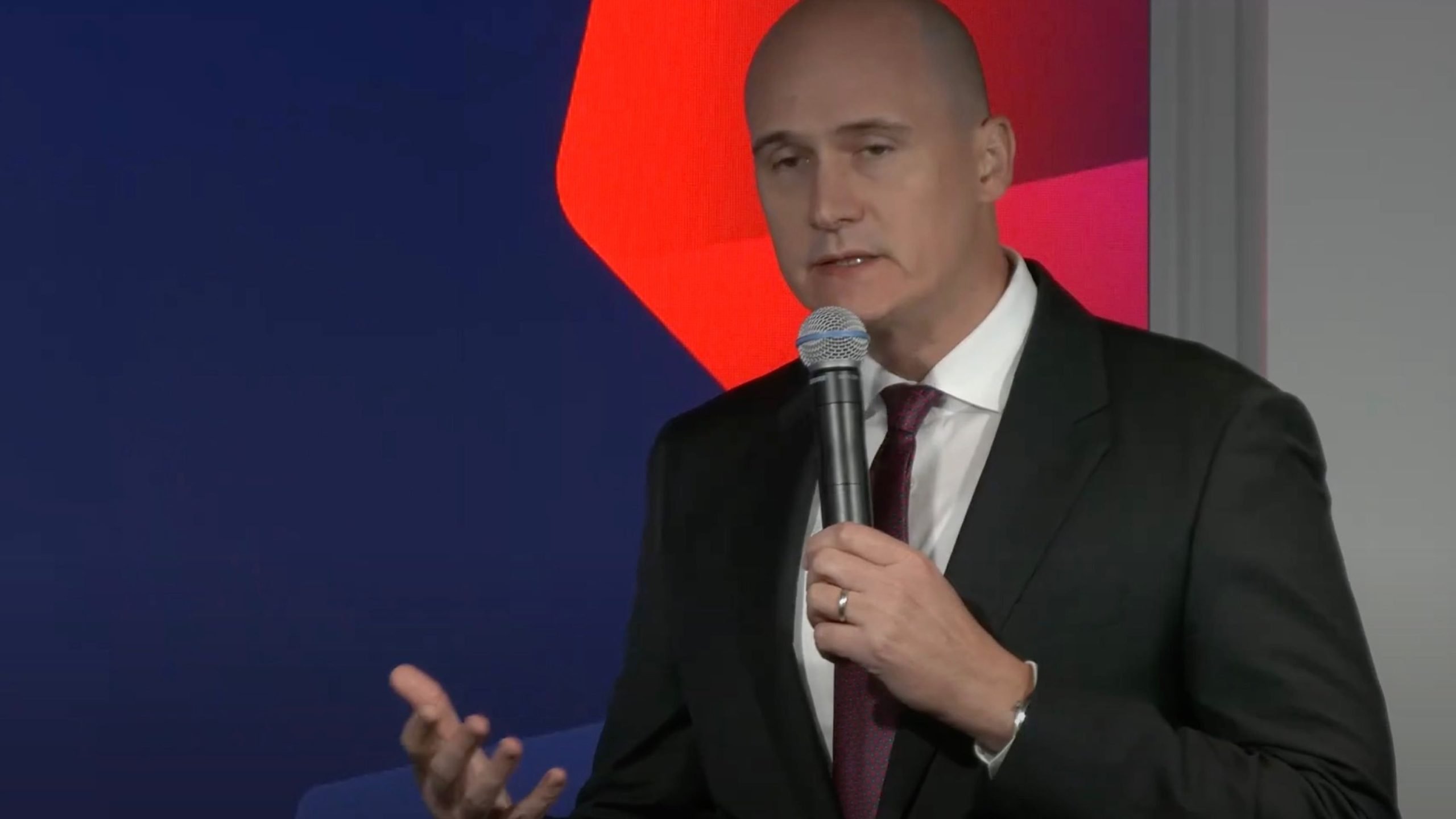If you’re tired of censorship and dystopian threats against civil liberties, subscribe to Reclaim The Net.
The World Economic Forum (WEF) annual meeting is coming up and top representatives of this unelected group gathering global elites are “coming out of the woodwork” once again, together with a predictable set of policy endorsements.
Many of those policies are built on ideas that originate and were first publicly voiced at the Davos meetings, to then over time become formalized by top-level international institutions like the United Nations (UN), making it somewhat difficult to understand which is older – the chicken or the egg.
Ahead of the start of this year’s summit, WEF Managing Director Mirek Dusek told a news conference that the 2025 WEF meeting will focus on “AI” – specifically around “AI governance” and how governments handle the technology.
At the same time, Dusek was praising related censorship and surveillance initiatives such as the upcoming France Summit for Action on Artificial Intelligence but also giving a nod to the UN’s High-level Advisory Body on Artificial Intelligence.
The latter, in its role as a global AI watchdog, published a report in September that goes into a number of recommendations tied to surveillance and censorship.
Here, Dusek appears to refer to it when he says that UN Secretary-General Antonio Guterres “achieved important success in September” by establishing a body referred to as “the first installment in terms of international collaboration around AI.”
Always on the topic of “AI governance” the WEF official also praised the summit in France, coming up on February 10 and 11, which – for all of Dusek’s talk about “the intersection between AI governance and AI competitiveness” – critics see as, in reality, focusing on ways to control and censor AI development.
Some of that focus in Paris will be on coming up with “common ground for international AI governance,” and also, combating “information manipulation” (especially on social networks) as well as “identifying and controlling higher risks that could arise from the uncontrolled use of AI” and, “defining standards for measuring these risks” which “could be a point of international convergence.”
Dusek’s remarks during the press conference showed that the priorities are very much aligned – the WEF, which will meet just shortly before the Paris event, from January 20 to 24, is looking to move the needle on AI, its governance and development models in the “preferred direction.”
True to form, the direction the WEF prefers is resolutely globalist.
“Different governments have different approaches to how they look at AI governance,” Dusek told the press, adding, “It’s very important that there is dialogue across those different geographies so that they can have lessons learned, exchange views on what’s working, what’s not working.”
If you’re tired of censorship and dystopian threats against civil liberties, subscribe to Reclaim The Net.
The post WEF Director Backs UN’s Pro-Censorship AI Watchdog, Praises France’s AI Summit on Control, and Announces 2025 Focus on AI Governance appeared first on Reclaim The Net.

